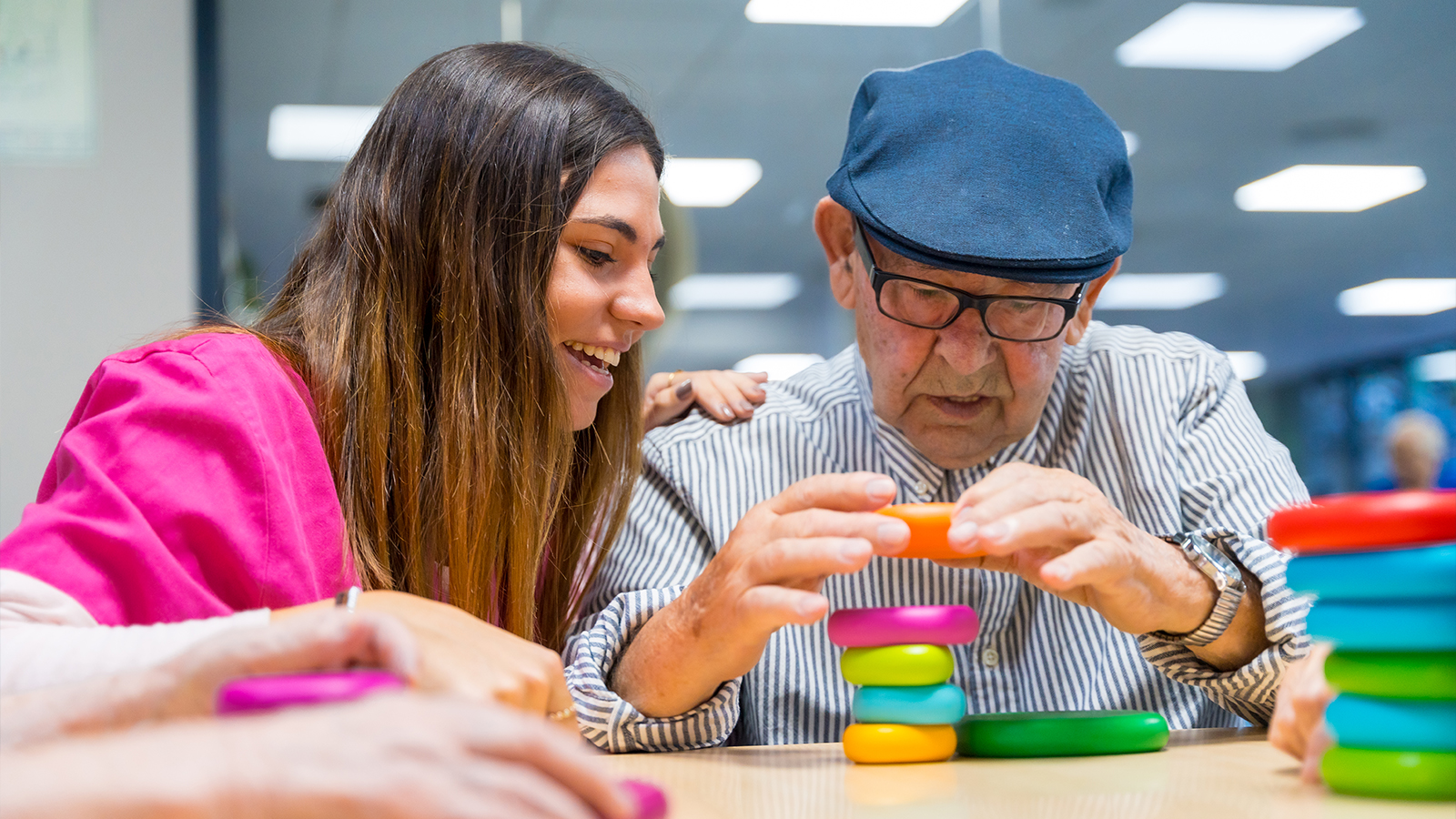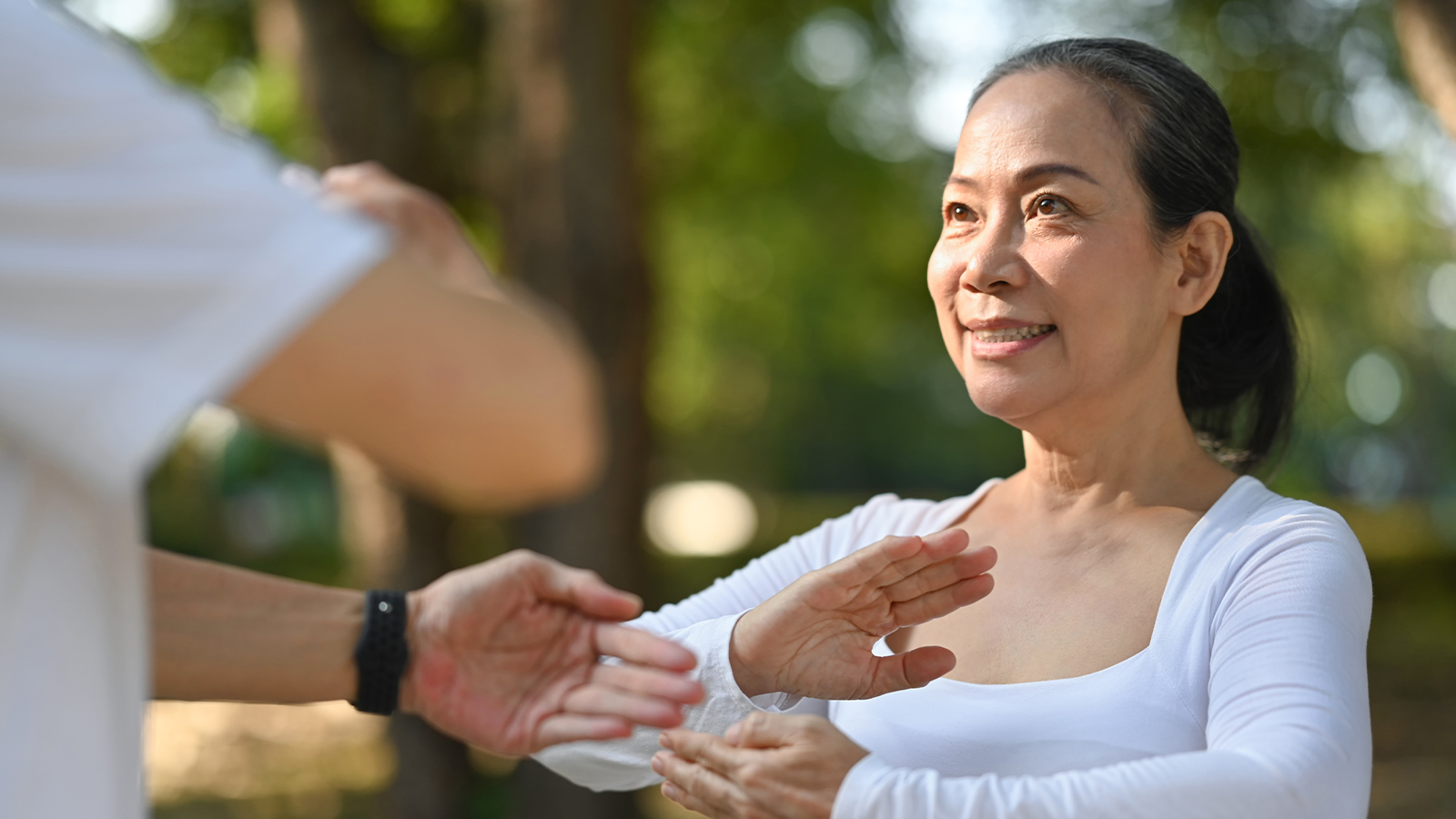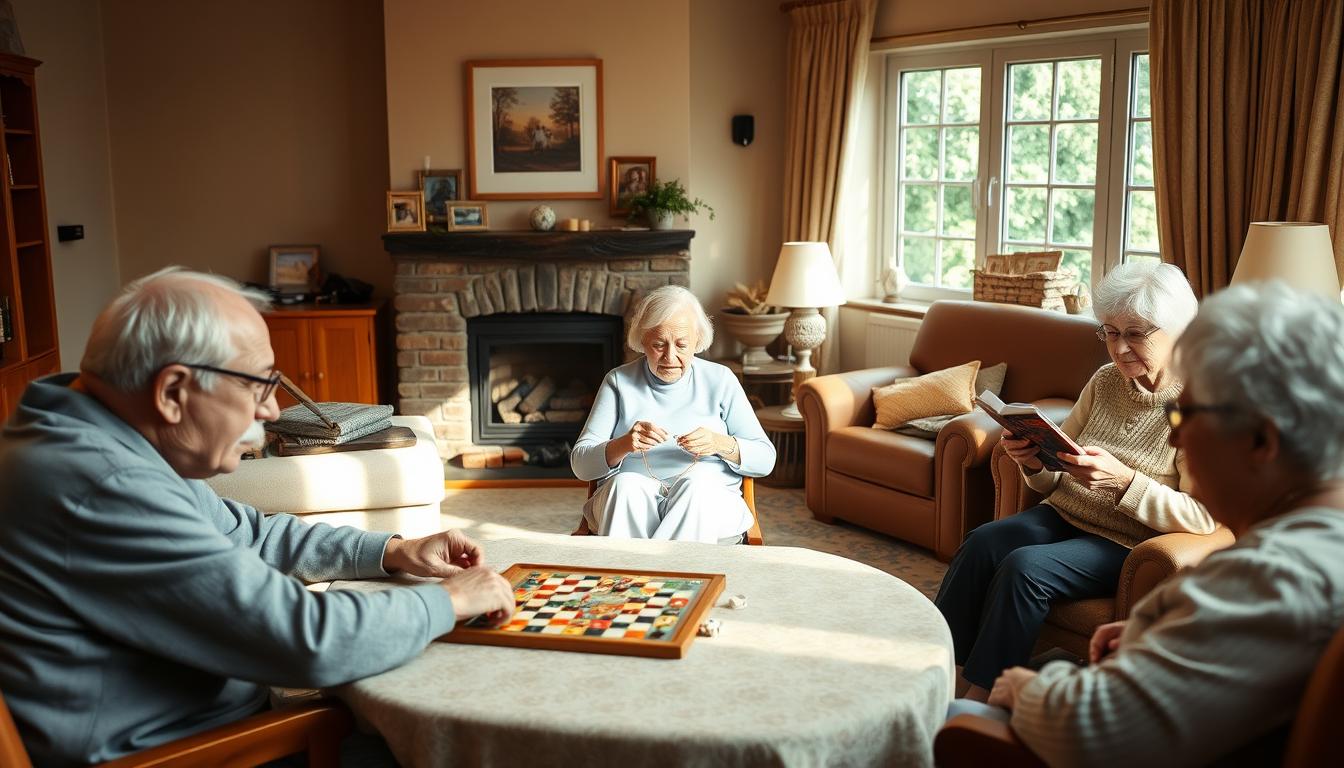Best Activities for Dementia Patients at Home
May
23
2025
Caring for a loved one with dementia at home can be challenging. The key is to keep them engaged in activities. This helps keep their quality of life high. Activities for people living with dementia should match their abilities, interests, and the disease stage.
Finding the right activities might take some time. But, with patience and creativity, you can make their days better. There are many activities to choose from, like creative pursuits and simple tasks. The goal is to bring joy and a sense of accomplishment through Therapeutic Care; do not look for perfection.
Key Takeaways
- Engaging dementia patients in meaningful activities is key for their quality of life
- The best activities are tailored to the person’s abilities, interests, and stage of dementia
- Creative activities like painting, music, and crafting provide emotional expression and tactile stimulation
- Reminiscence activities help recall cherished memories and provide comfort
- Simple tasks give a sense of accomplishment and purpose
Creative Activities to Keep Seniors Engaged
Engaging in creative activities is great for seniors with dementia. Arts and crafts offer a safe space for emotional expression and touch. These activities can lower stress, boost mood, and give a sense of achievement.
Painting and Drawing for Emotional Expression
Painting and drawing let seniors with dementia express their feelings creatively. Using bright colors on big surfaces is very stimulating and calming. Encourage them to try out different brushes, textures, and materials to make unique art. Depending on the stage of their disease, there are edible paints that can be used without fear of any harm if swallow.
At You’re First Home Care, we offer a comprehensive Art Therapy program for seniors and people with dementia.
Crafting with Different Textures for Tactile Stimulation
Crafting with various textures is great for seniors with dementia. Try projects like:
- Knitting or crocheting with soft, colorful yarns
- Creating sculptures with clay or play dough
- Assembling crafts with different materials like felt, foam, or fabric
The different textures can engage their senses and help them relax.
Creating Collages with Themes of Interest
Making a collage is another fun activity for seniors with dementia. Collect images, photos, and memorabilia that match their interests, such as:
| Interest | Collage Ideas |
| Cooking | Recipe clippings, food photos, kitchen tools |
| Fashion | Fabric swatches, clothing catalogs, accessories |
| Nature | Pressed flowers, leaves, nature magazine clippings |
Creating collages with themes can spark memories and encourage storytelling.
Reminiscence Activities to Recall Cherished Memories
Reminiscence therapy activities are great for seniors with dementia to remember happy times. These activities use sights and sounds to help them recall memories with caregivers or family members. Here are some fun activities you can do with your loved one at home.

Watch Classic Movies and TV Shows
Play a DVD or stream a favorite movie or TV show from their youth. The familiar scenes and sounds can bring back memories. Pick something from their favorite era and make it a cozy movie night for people with dementia at home.
Listening to Music and Singing Along
Music can bring back strong emotions and memories. Make a playlist of their favorite songs from when they were younger. Sing along if they want to. You can even have a dance party!
Looking Through Old Photo Albums
Get out the old photo albums and take a trip down memory lane. As you look through, talk about the people and places in the photos. Asking open-ended questions can help them share stories from the past.
Flipping Through Vintage Magazines and Catalogs
Vintage magazines and catalogs are full of memories. Collect old issues that match their interests, like Life or Sears catalogs. Looking at old articles and ads can spark interesting conversations and memories.

Fulfilling Tasks for a Sense of Accomplishment
Engaging someone with dementia in fulfilling tasks boosts their self-esteem. These activities should match their abilities and interests. This way, they can feel successful and satisfied.
Folding Laundry
Folding laundry is a calming activity for seniors with dementia. It provides tactile stimulation and a sense of purpose. Encourage them to fold towels or washcloths, praising their efforts.
By adding these tasks to their daily routine, you help them feel purposeful. This improves their well-being and quality of life.
Engaging in Simple Hands-On Projects
Hands-on projects that result in something tangible are rewarding. Consider activities like:
- Painting pre-cut wooden shapes
- Assembling simple PVC pipe structures
- Creating basic jewelry with large beads and elastic string
These projects stimulate the mind and keep fine motor skills sharp. They also give a clear sense of accomplishment.
Untying Knots for Cognitive and Physical Stimulation
Untying knots in a rope or string is good for both the mind and body. It challenges problem-solving and dexterity without being frustrated. Let your loved one work at their own pace, helping only when needed.
Solving Puzzles and Playing Games
Puzzles and games are great for keeping the mind sharp. Choose puzzles with big pieces and bright images, or simple games like matching or sorting. Play together, guiding when needed but letting them lead. Connect four is an easy game that helps with hand-eye coordination and cognition.
Sensory Activities for People with Dementia
Engaging in sensory activities can be a powerful way to stimulate the senses and evoke memories for dementia patients. By incorporating familiar smells, tastes, textures, and sounds into their daily routine, you can help your loved one connect with their past and find comfort in the present.
One way to stimulate the sense of smell is by using essential oils that remind your loved one of pleasant memories. This is called Aromatherapy Care.
Other examples: the aroma of fresh-baked cookies or the scent of a favorite flower. You can also engage their sense of taste by preparing meals with familiar flavors and textures. This could be a classic family recipe, or a cherished childhood treat.
Tactile stimulation is another important aspect of sensory activities for dementia patients. Encourage your loved one to touch and explore various textures. This could be soft fabrics, smooth stones, or rough tree bark. You can also create a sensory box filled with items that evoke memories. This could be a piece of driftwood from a favorite beach or a swatch of fabric from a beloved article of clothing. A fidget blanket is an option that provides tactile stimulation and sensory activities.
Incorporating music and sound into sensory activities can also be highly beneficial for dementia patients. Play songs from their youth or favorite genres to evoke memories and emotions. You can also use nature sounds, such as birdsong or ocean waves, to create a calming and soothing environment. White and green noise is effective for sleeping.
By engaging in these sensory activities, you can help your loved one with dementia feel more connected to the world around them. They can find moments of joy and comfort in their daily life.

Physical Activities to Support Mind and Body
Physical movement doesn’t just benefit the body—it helps stimulate the brain, improve mood, and reduce agitation in people with dementia. Gentle exercise also promotes better sleep, circulation, and balance, reducing the risk of falls. The key is choosing activities that are safe, simple, and adaptable. Here are some engaging activity ideas to stay active.
Practicing Tai Chi for Gentle Movement and Focus
Tai Chi is an excellent low-impact exercise for seniors with dementia. Its slow, flowing movements are easy to follow and promote balance, coordination, and relaxation. It can also help reduce stress and increase mental clarity. You can find beginner videos online or join a local senior-friendly class for older adults.
Taking Daily Walks for Routine and Stimulation
A short walk around the neighborhood, garden, or even inside the house provides fresh air and mild cardiovascular exercise. Walking also engages the senses—sights, smells, and sounds—which can be grounding and soothing for people with dementia.
Chair Exercises to Improve Flexibility and Circulation
For those with limited mobility, chair-based exercises are a great alternative. Try gentle stretches, seated marches, or light arm movements to music. These movements keep joints limber and encourage blood flow without overwhelming the participant. Incorporate resistance band exercises which are good for muscle tone.
Dancing to Music for Joyful Movement
Turn on familiar music and encourage your loved one to sway, tap, or even dance along. Movement paired with music offers a powerful emotional and physical outlet. It can lift their spirits and strengthen the connection between caregiver and patient.
Light Gardening for Purposeful Activity
Gardening can be both calming and productive. Watering plants, planting seeds, or gently pulling weeds are safe physical activities that offer sensory stimulation and a sense of accomplishment. Use raised beds or pots for easier access.
By incorporating simple physical activities like these, you support both the physical and emotional well-being of your loved one. Movement—no matter how small—can bring comfort, confidence, and connection.
Conclusion – Activities for Dementia Patients
Keeping dementia patients at home engaged is key to their happiness and health. It’s important to think about their abilities, interests, and how far the disease has progressed. Tailoring activities to their needs and ability can make them feel less frustrated and more joyful.
In the early stages, activities like reading, gardening, and crafting can be fun and stimulating. As the disease progresses, activities should be simpler and broken down into steps. Simple tasks, art projects, and activities that remind them of the past can be great in the middle stages.
For those in the late stages, focus on sensory experiences and emotional connections. Music, gentle touch, and looking at familiar photos can be very comforting.
The main thing is to make activities simple, familiar, and fun. By understanding your loved one’s abilities and interests, you can create a supportive and enjoyable space. This helps them stay connected and find purpose.
If your loved one has dementia and you feel like you need extra help, You’re First Home Care is here to help! Contact us today to schedule your consultation.
FAQ – Dementia-Friendly Activities
How can I find rewarding activities for my loved one with dementia?
Finding the right activities for your loved one with dementia might take some time. Look at their skills, interests, and how far their dementia has progressed. Activities that bring joy can make them feel accomplished and give them a sense of purpose. Try out different activities to see what they like and do well. This can help improve their quality of life.
What are some creative activities for seniors with dementia?
Activities like painting, drawing, and crafting let seniors with dementia express themselves safely. Use bright colors on big surfaces to help them relax. Crafting with different textures can also be very stimulating. Creating collages with pictures of things they love, like cooking or fashion, can be very engaging.
How can reminiscence therapy help my loved one with dementia?
Reminiscence therapy uses memories to comfort seniors with dementia. Watching old movies, listening to favorite music, and looking at photos can bring back happy memories. It’s a way to stimulate their memories and offer comfort.
What activities can give my loved one with dementia a sense of accomplishment?
Activities that give a sense of achievement are very important for seniors with dementia. Folding clothes can be calming. Doing simple projects like painting or cleaning their jewelry can show them what they’ve accomplished. Doing puzzles or playing simple games can helps with cognitive stimulation.
How can sensory activities benefit seniors with dementia?
Sensory activities can bring back fond memories for seniors with dementia. Smells like fresh-cut grass or baking can trigger happy memories. Tastes like their favorite desserts can also do the same. Touching familiar objects or feeling different textures can also stimulate their senses and encourage reminiscing.
What should I consider when planning activities for my loved one with dementia at home?
When planning activities at home, think about their abilities, interests, and dementia stage. Choose simple, enjoyable, and familiar activities to avoid frustration. In the early stages, they might enjoy reading or gardening. In the middle stages, break down activities into simple steps, like doing chores or art projects. For late-stage dementia, focus on sensory experiences and emotional connections with photos, music, and touch. Always tailor activities to their unique abilities and preferences to provide comfort and meaningful engagement.
Reach Out






